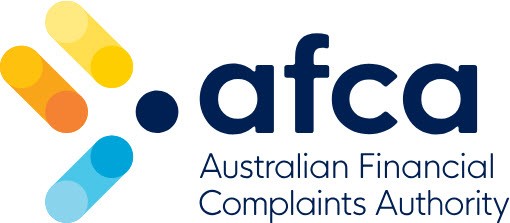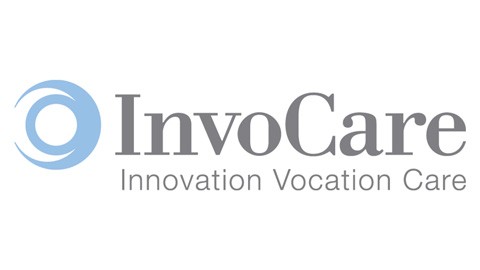Getting Past Conflict

Our Approach
Our unique approach to learning ensures your organisation receives a tailored session with every workshop delivered. When you partner with CMA, we work with you every step of the way:
CLIENT CONSULTATION
We work with clients to understand the learning needs and behavioural change required.
CASE STUDY CUSTOMISATION
All workshops include one customised case study to enhance skills applied within the workplace.
PARTICIPANT ANALYSIS
We learn more about the participants and their personal challenges, tailoring our facilitative examples to individual needs.
WORKSHOP DELIVERY
Our experienced practitioners will deliver the workshop at your chosen location.
SKILLS REINFORCEMENT
Post the workshop, participants receive helpful content reminders, access to our Alumni Portal and online coaching service.
Indeed, we do. Whether you’re interested in virtual workshops, online micro skill development, individual or group coaching to enhance your conflict resolution skills, CMA has a program for you.
Our online training is specifically designed to engage and motivate participants to resolve conflict easily and effectively. All of CMA’s online programs use the latest tools and functions in virtual training technology.
Our standard online conflict resolution course is 7.5 hours. This course can be taken in one session or broken up into multiple sessions (micro sessions). Each of our online courses have been specifically designed to ensure our participants are engaged and focused on developing skills that last a lifetime.
Indeed, you can. Our Getting Past Conflict program is offered both publicly and to in house clients. You can register directly from our website of contact us on contact@cmaconsulting.com.au
Participants walk away with a number of techniques that assist them to prepare for, execute and evaluate their difficult conversations. Our aim is to assist our participants to transform their existing conflicts into positive lasting relationships.
We explore the emotional aspects of difficult conversations. We focus on de-escalating the conflict and navigating the conversation. Using a systematic approach, we make it easy to navigate challenges as they arise. We then explore strategies to solve the substantive problem at hand. Our focus is on improving substantive outcomes, increasing confidence and building great working relationships.
Conflict exists in all facets of life, from our offices to the most intimate parts our personal lives. Conflict knows no boundaries. The conflict resolution strategies that we cover in our programs are applicable both professionally and personally.
Our robust frameworks, processes and strategies are designed to be applicable across all aspects of day to day life.
Understanding how to manage and resolve conflict is a key skill for anyone who works in a team, communicates directly with stakeholders or has a supervisory or managerial role. Often under rated, resolving interpersonal conflict can be hugely empowering and rewarding to individuals and teams
Think about a current or past conflict you have engaged in. It was exhausting right? Often conflict, whether we’re prepared to acknowledge it or not, takes up our time and energy. Conflict often worsens over time if ignored. It’s not uncommon for individuals avoid resolving conflict. This avoidance often carries a personal and commercial cost.
We certainly do. In addition to our standard online and face to face programs, CMA will partner with you to understand you and the specific challenges your people face.
We regularly design and provide customised solutions to match unique challenges. Our process usually involves deeper investigation into the specific conflict resolution challenges being faced by you and/or you team. Once we have a clear understanding of these challenges, we create targeted materials tailored to your needs.
CMA has been proudly delivering conflict resolution programs since 1993. Rest assured we are specialist in assisting individuals resolve conflicts. In fact, CMA stands for Conflict Management Skills Australasia.
Whether you’re interested in our public or in-house programs, CMA’s Conflict Resolution Training is accessible to you. We offer face-to-face programs in Sydney, Perth, Brisbane and Melbourne. We also offer conflict resolution training online. Our interactive and engaging virtual Conflict Resolution Training allows participants to access world class training from anywhere in the world.
Our world class content remains the same, the difference is in the delivery. CMA’s virtual conflict resolution training has been optimised for an online audience. We utilise a variety of specialist online functions to ensure our participants are focused on transforming their conflicts and difficult conversations.
Many of our clients enjoy the mobility, flexibility and accessibility of online training.
It’s not uncommon to have team conflict arise over goals, methods or differing personalities. In many cases individuals and teams choose to avoid conflict, which tends to worsen exacerbate the conflict over time.
CMA’s Getting Past Conflict workshop is aimed at resolving any type of professional conflict. We focus on methods and processes that assist participants resolve conflict both individually and for teams. We can partner with you to create a customised coaching program for teams.
Learning is about thinking and doing. Our facilitated Getting Past conflict workshop includes a combination of group and individual work as well as private simulated role- plays that enable participants to put their newly found conflict resolution skills to the test.
Our training also includes a combination of discussions, peer and facilitator feedback, individual and group work.
Online training means that individuals from various locations and time zones can connect. It allows teams and individuals to work together despite their physical distance. Our Getting Past Conflict programs also take into consideration how to resolve conflict virtually.
Yes, all of our online training include breaks every 60-90 minutes as well as smaller stretch breaks for shorter sessions.
Unfortunately, CMA no longer offer mediation services to assist you resolve your conflict. However, we can point you in the right direction if you are looking for a certified mediator. Reach out to us at contact@cmaconsulting.com.au to learn more.
This is an excellent program delivered to a high standard. The quality of the content expectation
This for me was clarifying & empowering exposure to a useable framework that I can use to achieve better outcomes.
Revolutionary concepts about solving conflict..










 Tim Goss
Tim Goss Erin Oldaker
Erin Oldaker Colin Bell
Colin Bell